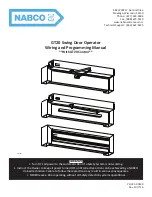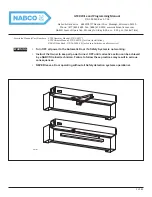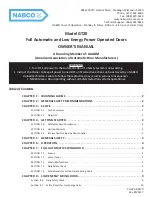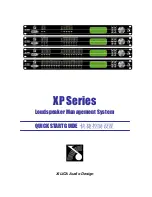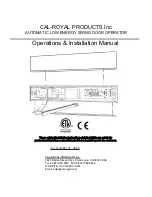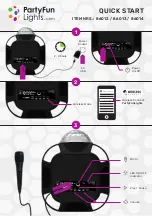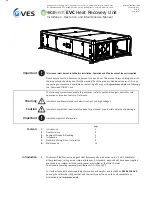
Page 21
5
Work preparation
When operating the automatic welding machine ensure that it is installed on a sure footing. The welding
device is splash proof (IP54).
The device must not be submerged in water.
In order to secure the fitting against slipping during the welding process, the respective clamping fixtures
should be used. The assembly instructions for the respective fitting manufacturer as well as local or
national regulations and installation instructions should always be observed.
The contact surfaces of the welding plug and the fitting must be clean. Dirty contacts can lead to
overheating damage to the plug. Check which plug type(s) are needed for the welding to be performed.
Before changing the plug, always unplug the mains power plug beforehand.
In order to change the plug-in contacts, insert a pin or a similar item (3mm
dia.) at the side into the bore on the screw connector and hold fast.
Unscrew using a screwdriver with a Torx 15 adapter and remove.
Put in the new adapter by hand and screw on down to the stop and
tighten down firmly using a screwdriver with a Torx 15 (15 Nm) and then
remove the holding pin again.
All metallic surfaces must be covered.
6
Electrical connection
For construction site distribution boards observe the regulations about the FI protective switch and only
operate the welding device over an FI switch (Residual Current Device, RCD).
Ensure that the mains power network or power generator is fused using fuses of a maximum of 20 A
(time-lag).
Only appropriately use approved and registered extensions cables with the following conductor cross-
sections.
up to 20 m:
1.5 mm² (recommended 2.5 mm²); model H07RN-F
more than 20 m:
2.5 mm² (recommended 4.0 mm²); model H07RN-F
The extension cable may only be used when unrolled completely and stretched to avoid overheating.
The required power generator nominal output is dependent on the highest power consumption of the
fittings used. Furthermore, the ambient conditions as well as the performance data of the power
generator itself should be taken into account when constructing the connecting conditions on-site.
The nominal power output of a single-phase power generator is 220
–
240 V, 50/60 Hz:
d 20 - d 160 ........ 3,2 kW
d 160 - d 400 ...... 4 kW mechanically regulated
d > 400 ............... 5 kW electronically regulated
The power generator must be switched on first before the welding equipment can be attached. The open
circuit voltage should be regulated at about 240 volts.
Note: No other consumer should be driven by the same power generator while welding!
After finishing the welding work, first separate the device connector plug from the power generator, then
switch this off.
Summary of Contents for VULCA VIWEL+ 1200
Page 31: ...Page 31...





























